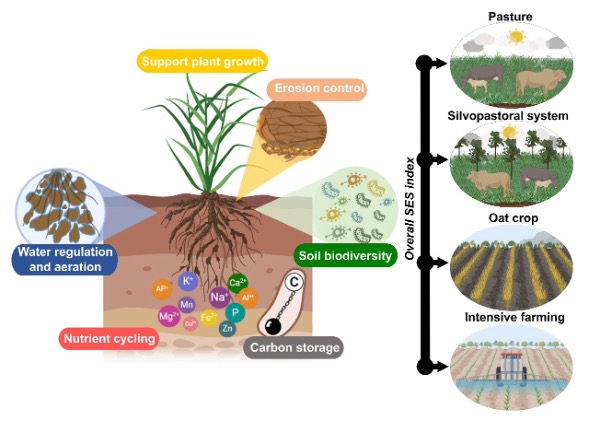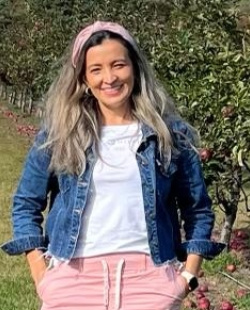
Understanding how livestock production affects soil carbon sequestration and other ecosystem services in Colombia
IGCB Exchange Professor, Dr Adriana Silva Olaya along with SEAS Professor, Jennifer Blesh, are conducting a study to assess how livestock production affects soil carbon sequestration and other ecosystem services in Colombia. Colombia is one of 17 'megadiverse countries' that includes parts of the Amazon basin and the Andes. However, despite playing a critical role in freshwater supply, climate regulation, and other vital ecosystem services, both biomes are threatened by deforestation from the expansion of the agricultural frontier, mainly for the establishment of extensive non-native pastures for livestock production. The combination of land use change and pasture mismanagement has led to soil degradation over time. To mitigate the negative impacts of traditional extensive cattle ranching, some farmers are transitioning their pastures to silvopastoral management (i.e., trees and shrubs intercropped with tropical grasses). In this context, this project aims to assess: i) the impact of land-use transition from forest to pasture on soil microbial diversity and ii) the capacity for integrated silvopastoral systems to restore soil C and increase multiple ecosystem services (i.e., multifunctionality). For the first aim, we will use shotgun metagenomic libraries generated from DNA of soil samples (topsoil, 10 cm depth) collected along a chronosequence of four study sites representing a typical forest-to-pasture transition for extensive cattle ranching in the Amazon region. To assess outcomes of transitions to silvopastoral systems, we will analyze a suite of ecosystem services from soils collected in pasture, silvopastoral, and agricultural systems in the Andes region of Colombia. Results can inform the development of public policies that promote climate-smart agriculture in Colombia and advance the United Nations Framework Convention on Climate Change and the UN Sustainable Development Goals.

Researchers involved:


